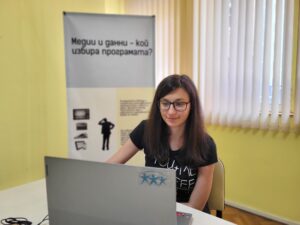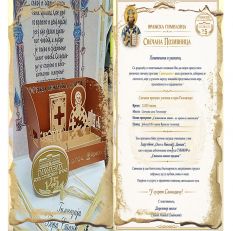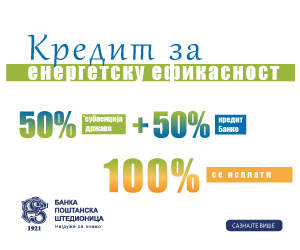
Izvor: Megafon.co, 16.Jul.2023, 13:41
Istorijski trenuci i izborni sistemi
*Text in English below.
U ovoj priči idemo malo istočnije, do komšijske Bugarske. Lilian Nikiforova je stručnjakinja u nevladinoj organizaciji Institut za razvoj javne sredine (IPED). Ona i njene kolege rade na tome da bugarske institucije postanu transparentnije i odgovornije. Veliki deo njenog rada posvećen je obezbeđivanju slobodnih i fer izbora i informisanju birača putem onlajn platformi koje njena organizacija ažurira – Open Parliament i My >> Pročitaj celu vest na sajtu Megafon.co << Vote.
Foto – Privatna Arhiva
Lilian i njen tim uspeli su da utiču na bugarski izborni proces i učine ga transparentnijim analizirajući kvalitativne i kvantitativne podatke vezane za izbore i političko finansiranje u Bugarskoj.
“Jedan od najistaknutijih primera je problematična administracija evropskih izbora 2019. godine, koja je rezultirala netačnim prebrojavanjem preferencijalnih glasova na 1.149 biračkih mesta. Mi smo bili organizacija koja je ukazala na taj problem i zbog medijske pažnje koju smo privukli, pravila su promenjena. Tako je na sledećim izborima postupak prebrojavanja bio bolje organizovan, a članovima biračkih odbora bilo je lakše obavljati svoj posao ispravno.”
Trenutno rade na problemu registracije stanovnika 6 ili 7 meseci pre lokalnih izbora kako bi im se omogućilo da glasaju na predstojećim lokalnim izborima.
“Proverili smo podatke o ovim registracijama i već smo zabrinuti zbog čudnog porasta broja registrovanih ljudi u poslednja 2 meseca pre roka. Zahvaljujući našim analizama i javnoj pažnji koju je to privuklo, vlasti u nekoliko gradova pokrenule su procedure za proveru ove prakse. Tako smo praktično uspeli da se suprotstavimo takvim praksama i delujemo kao uzbunjivači kako bismo garantovali prava birača.”
Foto – Privatna Arhiva
Lili kaže da je takođe ponosna na aplikaciju My Vote.
“To je jedina platforma u našoj zemlji koja pruža informacije o pravima različitih grupa birača. Pored toga, neprekidno ulažemo napore da organizujemo nezavisno posmatranje na dan izbora. Obučavamo volontere i oni nam pružaju dragocene uvide o situaciji na različitim biračkim mestima tokom izbornog dana. Zahvaljujući njihovim naporima, oblikujemo preporuke za promene u zakonodavstvu i upravljanju procesom.”
NVO u Bugarskoj
Najveća prepreka s kojom se Lili susrela u svojoj karijeri je nerazumevanje njenog rada kako od strane institucija tako i od strane građana. Po njenom mišljenju, NVO bi trebalo da bude korektiv, ali i partner institucijama. Međutim, to je teško kada institucije nisu spremne da sarađuju. Zato često moraju da prave buku i privlače pažnju javnosti na konkretne probleme koje žele da reše. Zbog toga promene često dolaze sporo. Ipak, putem zagovaranja i saradnje sa medijima, stvari se kreću na bolje, kaže ona.
“Dodatno, tokom poslednjih 10 godina, u Bugarskoj su se povremeno pojavljivali narativi koji imaju za cilj da oštete ugled NVO. Zbog toga je teško za ceo sektor u kojem radim, jer moramo uložiti dodatne napore da građanima pokažemo ko smo i da zaista radimo na tome da naša zemlja postane bolje mesto za život. Zato nam je naš rad sa volonterima i direktan kontakt sa građanima, o kojima sam prethodno govorila, veoma važan – regrutovanje volontera i objašnjavanje prava građana takođe nam pomaže da pokažemo javnosti da su analitički delovi naših aktivnosti, koji su im udaljeniji, takođe važni.”
Žene u sektoru NVO su uglavnom većina u Bugarskoj, kaže Lili.
“Izgleda da smo spremnije da radimo za cilj koji zahteva mnogo više od petodnevne radne nedelje. U tom smislu, uklopila sam se u veću sliku.”
Ali tu je i druga strana medalje.
“Područje na kojem radim, odbrana političkih prava građana, prilično je udaljeno od šire javnosti i s obzirom na to da ponekad implicira ozbiljan sukob, pretpostavljam da nije viđeno kao “posao za žene”. Ne verujem u to, jer borba za demokratske institucije je dužnost svih nas.”
Istorijski trenuci u Americi
Tokom svog stažiranja kroz program Community Solutions, Lili je bila smeštena u Portlandu, Oregon. Radila je sa North Star Civic Foundation. Dala im je uvid u bugarski politički sistem i hranu , dok je učila o oblicima političkog finansiranja u Americi i različitim izbornim sistemima.
“Tokom vremena provedenog u Oregonu, Portland je započeo promenu načina vođenja lokalnih izbora, kao i oblika lokalne samouprave. Pre toga, to nije promenjeno 100 godina, pa je to doslovno bio istorijski trenutak za grad.”
Foto – Privatna Arhiva
Sve što je videla i naučila biće izuzetno korisno u njenom radu kod kuće. Ali najvrednije što je tamo stekla su svakako prijateljstva, kaže ona.
“Par s kojim sam živela postao je moja ‘američka porodica’, dok su moje kolege u North Star Civic Foundation bile izuzetno otvorene za učenje jednih od drugih i zaista su me učinile delom svog tima!”
Još jedna lična prednost za Lili bila je priroda. Iz Portlanda, za nekoliko sati, mogla je da ode do Tihog okeana, u šetnju po šumi ili na putovanje pustinjom.
Budućnost
Lili planira da završi master studije političke sociologije do kraja godine. Tema je stvaranje obrazovnog sistema koji podstiče pozitivnu saradnju među decom i uključuje one sa nižim socioekonomskim statusom.
“Verujem da je to jedini način da napredujemo kao društvo.”
Osim toga, nastavlja da radi na pitanjima izbora…
“…i nemam nameru da odustanem od toga uskoro! Kako sam već pomenula, lokalni izbori su predstojeći za nekoliko meseci, a sledeće godine će biti evropski izbori, tako da me čeka puno posla!”
Foto – Sonja Urošević
Historical Moments and Electoral Systems
In this story, we are going just a little bit east, to our neighboring country, Bulgaria. Lilian Nikiforova is an expert in the non-governmental organization called the Institute for Public Environment Development (IPED). Together with her colleagues, she works to make Bulgarian institutions more transparent and accountable. A big part of her work is dedicated to ensuring free and fair elections and informing voters through the online platforms that her organization updates – the Open Parliament and My Vote.
Lilian and her team managed to influence the Bulgarian electoral process and make it more transparent by analyzing qualitative and quantitative data related to elections and political financing in Bulgaria. They formulate recommendations for improvement.
“One of the most prominent examples is the problematic administration of the European elections in 2019, which led to the miscounting of preferential votes in 1,149 polling stations. We were the organization that pointed out that problem, and due to the media attention we gathered, the rules were changed. Thus, in the next elections, the tabulating procedure was better organized, and it was easier for members of the precinct commissions to do their jobs correctly.”
Currently, they are working on the problem of registering residents 6 or 7 months prior to local elections to make them eligible to vote in the upcoming local elections.
“We have checked the data about these registrations, and we are already alarmed that there is a strange increase in the number of people registered just in the last 2 months before the deadline. Thanks to our analyses and the publicity it generated, the authorities in several towns have initiated procedures to audit this practice. Thus, we have practically been able to counteract such practices and act as a whistleblower to guarantee the voters’ rights.”
Lili says that she is also proud of their app, My Vote.
“It is the only platform in our country that provides information on the rights of different groups of voters. Last but not least, we invest continuous efforts to organize independent observation on election days. We train volunteers, and they provide us with valuable insights about the situation in various voting stations during the election day. Thanks to their efforts, we are shaping recommendations for changes in legislation and the administration of the process.”
The NGO sector in Bulgaria
The biggest obstacle Lili has encountered in her career is the misunderstanding about her work among both institutions and citizens. In her opinion, NGOs should be a corrective but also a partner of the institutions. However, this is difficult when institutions are not willing to cooperate. So, they often have to make noise and draw the public’s attention to the specific issues they want to address. This is why change often happens slowly. Nevertheless, through advocacy and cooperation with the media, things move forward, she says.
“In addition, over the past 10 years, narratives have periodically appeared in Bulgaria that aim to harm the reputation of NGOs. Therefore, it is hard for the whole sector in which I work because we need to make an extra effort to show citizens who we are and that we are actually working to make our country a better place to live. That’s why our work with volunteers and the direct contact with citizens, which I previously mentioned, are so important to us – recruiting volunteers and explaining citizens’ rights also helps us show the public that the more analytical parts of our activities, which are further away from them, are also important.”
Women in the NGO sector are more or less a majority in Bulgaria, says Lili.
“It seems as though we are more willing to work for a cause that requires much more than a 5-day work week. In that sense, I fit into the bigger picture.”
But there is another side to it.
“The area in which I work, defending the political rights of citizens, is rather distant from the wider public, and as far as it implies serious confrontation sometimes, I guess it is not viewed as the most ‘feminine’ work. I don’t believe in that because the fight for more democratic institutions is everyone’s duty.”
Historical moments in the US
During her Community Solutions Program practicum, Lili was placed in Portland, Oregon, where she worked with the North Star Civic Foundation. She provided them with insights into the Bulgarian political system and food while learning about the forms of political financing in the US and different electoral systems.
“During the time I was in Oregon, Portland started a change in the way they run local elections as well as the form of the local government. It hadn’t been changed in 100 years before that, so it was literally a historical moment for the city.”
Everything she has seen and learned will be extremely useful in her work back home. But the most valuable things she gained there were certainly the friendships, she says.
“The couple I lived with became my ‘American family,’ whereas my colleagues at the North Star Civic Foundation were extremely open to learning from each other and really made me feel like a part of their team!”
Another bonus on a personal level for Lili was the nature. From Portland, in a few hours, she could go to the Pacific Ocean, go for a hike in the woods, or take a road trip to visit the high desert.
The Future
Lili plans to finish her master’s degree in political sociology by the end of the year. The topic is creating an education system that encourages positive cooperation between children and is inclusive of those with lower socio-economic backgrounds.
“I believe this is the only way we can move forward as a society.”
Beyond that, she continues to work on election issues.
“…and I am not planning to give up on it anytime soon! As already mentioned, the local elections are coming in a few months, and next year there will be the European ones, so I have a lot of work ahead!”





